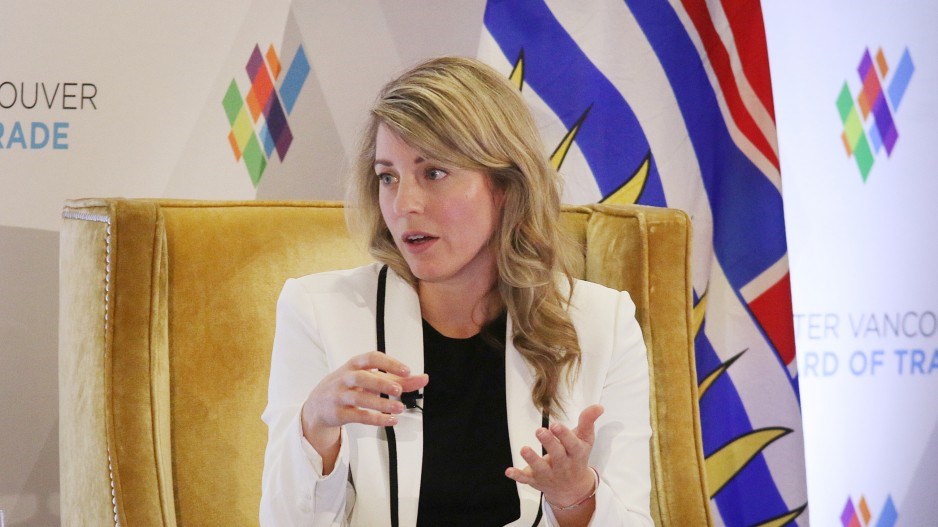Minister of Foreign Affairs Mélanie Joly said Canada’s Indo-Pacific Strategy can help businesses diversify away from China – the second-largest trade partner for Canada and –°¿∂ ”∆µ, and “an increasingly disruptive world power.”
“The last two years have shown us that the tectonic plates of the world power structures are moving, and the impacts are being felt everywhere, from your bottom lines to household budgets,” said Joly at a luncheon hosted by the Greater Vancouver Board of Trade on Tuesday.
“The strategy paints a full picture of how Canada intends not just to engage, but to lead in the midst of a generational global shift.”
The Indo-Pacific is the fastest-growing region in the world. Set to be home to two-thirds of the global middle class by 2023 and account for more than half of the global economy by 2040, it poses great potential for Canadian businesses.
However, there is also great competition for political power in the region, with interstate tensions flaring or re-emerging between key players such as China and India, according to Joly. Meanwhile, Japan and South Korea are facing security threats from North Korea and China “who continues to challenge international norms.”
“So, expanding our partnerships with countries in this region and deepening our ties is absolutely critical,” she said.
“As businesspeople, the decisions you are to take when doing business in and with the region are your own. And as foreign minister, my job is to highlight what are the geopolitical risks in that context.… Also, to help you diversify and find new options throughout the region.”
Joly said the strategy will help Canadian businesses diversify by accessing new trade conditions and lowering barriers when entering new markets.
The plan includes investing $245 million in programs such as creating a new trade gateway in Southeast Asia, appointing a new Canadian Indo-Pacific trade representative, sending trade missions on priority areas such as tech and energy – the first of which has taken place in Singapore – and opening a new agriculture and agri-food office in the region.
As part of the strategy, the federal government will also seek to strengthen and expand the Comprehensive and Progressive Agreement for Trans-Pacific Partnership (CPTPP), and conclude new trade agreements with the Association of Southeast Asian Nations (ASEAN), India and Indonesia. Canada also intends to join the Indo-Pacific Economy Framework for Prosperity (IPEF) launched by U.S. President Joe Biden a year ago.
“Our goal is to make sure that there are more businesspeople and academics in the region,” said Joly.
“You'll see through the different programs we'll be releasing, there will be funding for basically all these people to go to the region or people from the region to come here.”
Joly said the strategy includes China because “we needed to talk about the elephant in the room” and set in stone how Canada will manage its relationship with the country.
“The goal was to make sure that we would describe how we see China, which is an increasingly disruptive global power, and at the same time, we would challenge China when there are opportunities to cooperate.
“'It's not complicated, you just don't meddle in our democracy,'” said Joly. “At the end of the day, we have to make sure that we respect our democracy because it's at the core of enjoying any form of prosperity in this country.”






